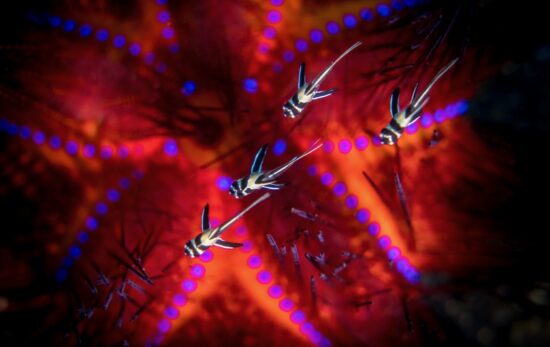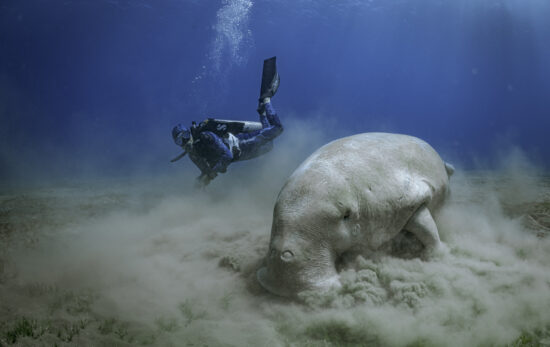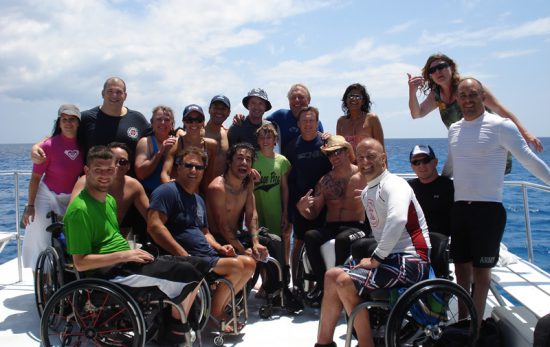“Why would you do a liveaboard in Lembeh?” Mr. Know-It-All Diver said, incredulous. “That’s stupid.”
“I have been bitten by insects on six continents,” I explained. “Liveaboards are the only way I can enjoy diving in tropical locations.”
Mr. Know-It-All Diver crossed his arms, “Why don’t you just use bug repellent?”
Before I could (sarcastically) reply, “Thanks, genius. Never thought of that,” an angel named Terry appeared at my side.
“It’s the same for me. I only do liveaboards, because mosquitos and no-see-ums eat me alive,” Terry explained.
Mr. Know-It-All Diver left to go play by himself while Terry and I exchanged horror stories. I showed her the scars on my legs from when no-see-ums attacked me as I trekked from the shoreline to the dive shop in Roatán. She showed me her travel kit of prescription creams and emergency antibiotics.

Why am I telling you this? Because, unlike other articles about how to prevent bug bites and how to stop bug bites from itching, this article is written by someone who has tried just about everything.
Quick Note: This article focuses on preventing and treating itchy bug bites from mosquitoes, fleas and no see-ums. This article will not address stinging insects, spider bites, bed bugs or ticks.
Why Do Bug Bites Itch?
When a bug bites, it injects saliva. For some people, this triggers an immune response. Histamines are released, which stimulates blood flow and the affected area becomes inflamed.
Some people who say, “I don’t get bit. Bugs don’t like me.” But, that’s not necessarily true. It’s possible those people are getting bit, but their bodies don’t react.
I’ve watched a mosquito land on my partner and bite him. How do I know? Before the bug could fly away, I photographed it. I’ve done this experiment multiple times, and he never gets an itchy bump like I do.
The podcast Ologies has an insightful episode about who gets bit and why. Be sure to listen to Part Two.
How to Make Bug Bites Stop Itching
As soon as possible, clean the bite area with an antibacterial wipe or soap and water. This is mainly to prevent infection.
Once the itchiness starts, here are a few things you can try. Please note that you should consult a medical professional before beginning any new treatments:
- A topical antihistamine, such as hydrocortisone or Benadryl cream
- Calamine lotion
- An over-the-counter oral antihistamine, such as cetirizine (also known as Allacan, Piriteze Allergy and Zyrtec), fexofenadine or levocetirizine (Xyzal). Benadryl also works, but it’s more likely to cause drowsiness.
For me personally, none of the anti-itch solutions listed above work very well. Over-the-counter topical creams are no match for the raging itch my body can produce, and the oral antihistamines take at least 24 hours to start working.
So what does stop the itch? Hot water.
How to Stop Bug Bites From Itching in Seconds
I am eternally grateful to a woman in New Zealand for telling me about the hot water treatment. I walked into her souvenir shop with approximately 40 bites all over my face, arms and legs. She took one look at my spotty skin and miserable expression and recommended a hot shower, “As hot as you can stand.”
You can use a spoon or washcloth to treat individual bites. Dip the spoon or washcloth into hot (never boiling) water then do a test tap on your skin. It should feel hot but not scalding. When the temperature feels right, press the spoon or washcloth against the bite for a few seconds.
The relief I feel when I apply hot water to itchy bug bites is hard to describe. It reminds me of a group of musicians playing louder and louder, building to a massive crescendo until…all is quiet.
Why does it work? This is a bit of an oversimplification, but basically the heat creates a distraction. Your nerves go from, “I’m itchy! I’m itchy!” to “I’m hot! I’m hot!” Once the skin cools down, your nerves forget about being itchy for a while.
Hot water gives me up to four hours of relief. It’s not enough to sleep through the night (more on that in a second), but I prefer this method to taking an oral antihistamine. When I’m on a dive trip, I’m often taking seasickness medication and the combo makes my brain foggy.
Be Very, Very Careful:
- Don’t use boiling or scalding water
- Do a test tap before you press down
- Never do a temperature test on behalf of someone else
- Don’t put hot water in sensitive areas
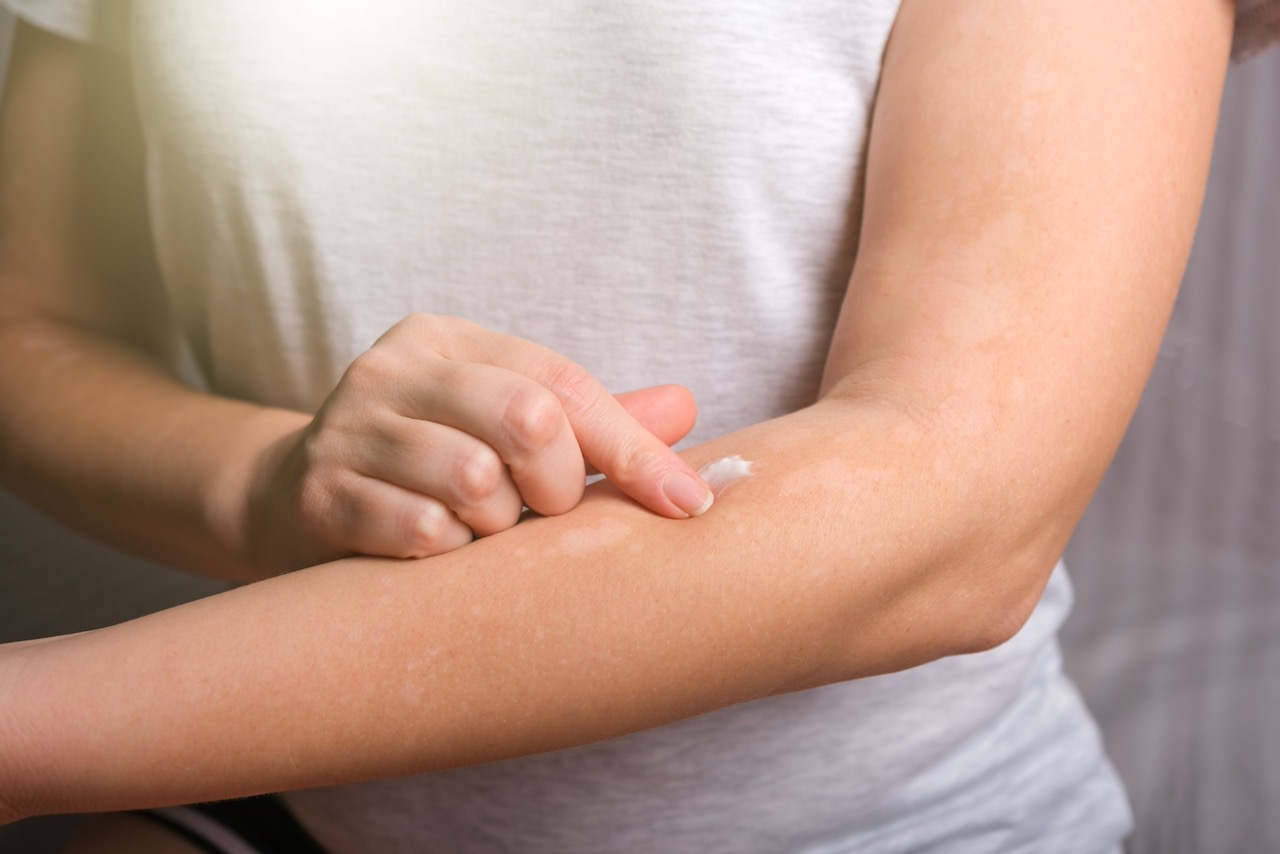
Other Natural Anti-Itch Remedies
I zap my bites with hot water before I go to sleep and keep either a cooler with ice packs or a Biteaway (thanks, Terry!) next to the bed. The Biteaway looks like a large pen and has a tip that heats up to 51 C°/124 F°. It works almost as well as hot water and it’s much easier to keep at your bedside. You can also bring it on an airplane.
Here are some other natural anti-itch solutions I found online (that don’t work for me)
- Baking soda*
- NOTE: if you dribble the paste on wood it will eat the finish off
- An oatmeal bath or paste
- Menthol or peppermint oil
* The active ingredient in After Bite.
Don’t Scratch!
I know how tempting it is to scratch. It feels so good, then so horrible (this comic sums it up perfectly).
Remember: Your skin is covered in bacteria. Scratching can break the skin and allow strep or staph to get in, which can lead to a serious condition called cellulitis. I once saw a red line emerging from a bug bite. The next day, I noticed the red line extending up my arm along a vein. I had to stop my trip and find a clinic — where they gave me an injection (not in my arm) and 10 days worth of antibiotics to treat the cellulitis.
How to Prevent Insect Bites
Products containing DEET (N,N-Diethyl-meta-toluamide) such as Bushmans and OFF! are effective bug repellents, even for a mozzie magnet like me. That said, I would never use DEET before going on a dive or into nature. It’s a serious chemical. I once had DEET on my face, and, after answering a call on my phone, I noticed the plastic was melted where the side of the phone touched my face.
When using DEET:
- Read and follow the directions on the package
- Never apply DEET to broken skin
- Don’t get it in your eyes or mouth
- And don’t let children put DEET on themselves
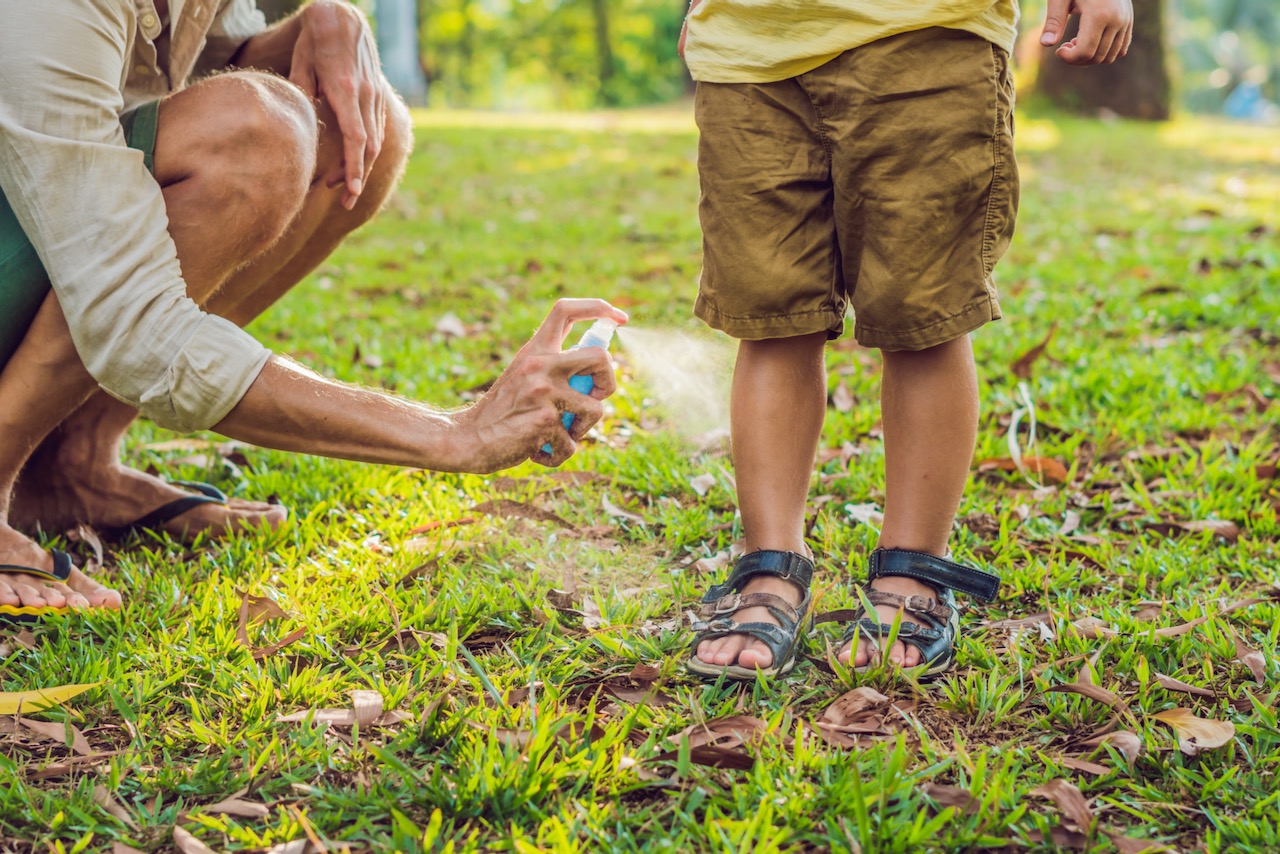
DEET Alternatives
Picaridin, also known as icaridin, is based on chemicals found in the black pepper plant. A two-year NIH study in Cambodia found, “Picaridin 20% performed equally well as DEET 20%.”
I did a head-to-head test with Picaridin on one side of my body and DEET on the other. I went for a summer evening walk and returned unbitten.
If you don’t want to put chemicals on your skin, you can spray permethrin on your clothes. This doesn’t work for me because mosquitos will still bite any exposed skin.
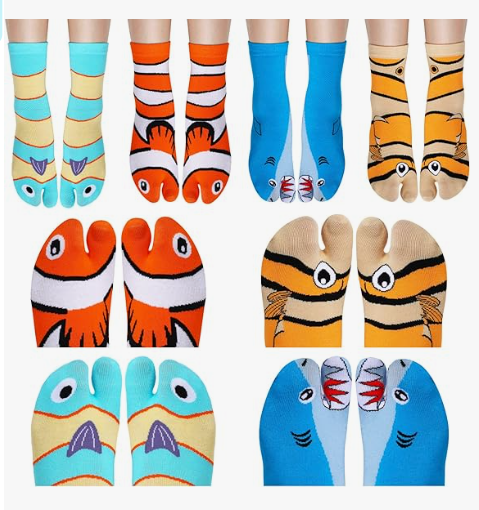
Natural Insect Repellents
The most effective, chemical-free way to avoid bug bites is to cover up. Wear a long-sleeved shirt that extends past your waistband, long trousers, shoes and socks that extend past your ankles. Light-colored clothing is recommended, because dark-colored clothing can cause you to sweat more and the scent will attract mosquitos.
Sometimes I wear socks with flip-flops, not just because I’m from the Pacific Northwest, okay? Tabi socks are designed to be worn with sandals, and you can get them in plain colors or fun fish patterns.
If you’re going deep into buggy territory, consider wearing a hat with a head net. Personally, I just stay on the liveaboard boat.
Studies show bug spray made with 30% lemon eucalyptus oil is as effective as DEET in repelling mosquitoes and ticks. I haven’t tried this product, but I’ll give the local mozzies a taste test this summer.
Bug Bite Treatments and Insect Repellents That Don’t Work for Me
- The bracelet (Buggy Bands)
- The suction tube (Bug Bite Thing)
- Avon Skin So Soft
- Eating an abundance of garlic
- Taking a lot of B vitamins
- Tea tree oil
You may have heard drinking beer or eating bananas attracts mosquitoes, but this has been disproven. Your blood type, not what you eat or drink, is a more significant factor.
Related Reading
- Tips for Your First Liveaboard Trip
- Explore Liveaboard Diving
- Ologies Podcast Interview with Mosquito Expert Dr. Fhallon Ware-Gilmore
Amazon Affiliate Disclosure
The product links in this article are affiliated with an Amazon Associates account. If you click a link in this article and purchase one of the featured products, the Amazon Associates commission will be donated to the PADI AWARE Foundation®.

